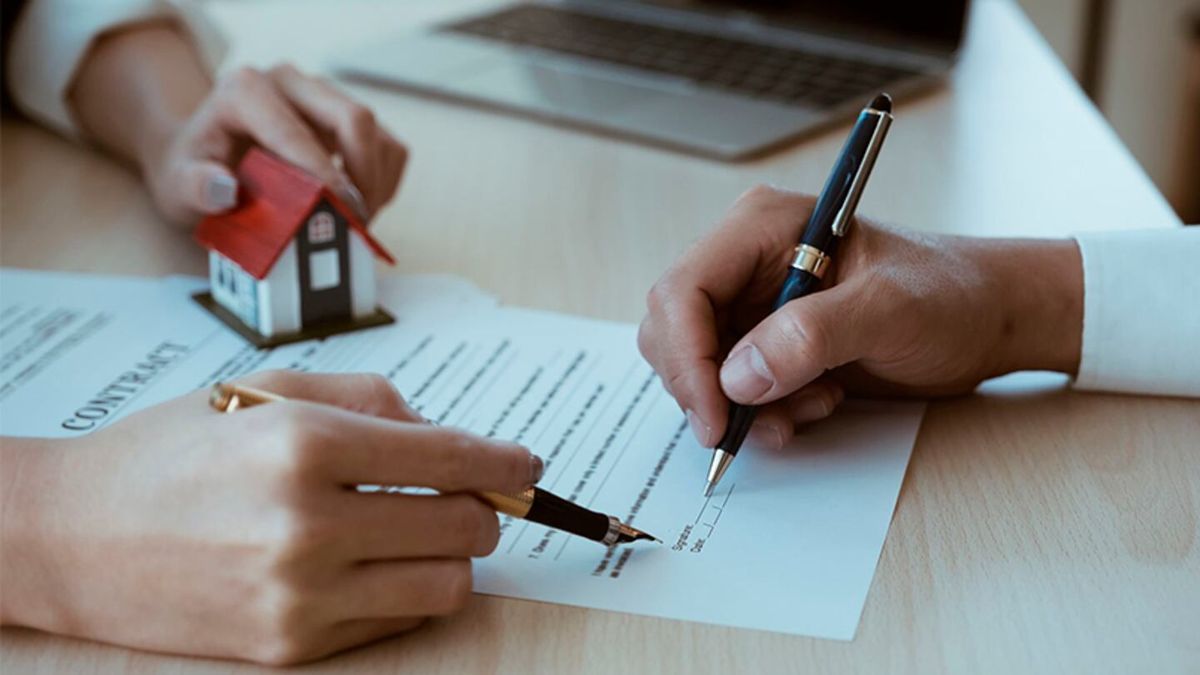BuySellBA
Administrator
Gift giving is on the rise: Why is it worth transferring property during your lifetime? How much is it worth? How do you do it? - Ámbito Financiero

Source:

Donaciones en auge: ¿por qué conviene hacer el traspaso de propiedades en vida, cuánto vale y cómo realizarlo?
Es tendencia adelantar la herencia de inmuebles. Expertos detallan ventajas, costos y el proceso para transferir inmuebles y evitar conflictos futuros.
July 15, 2025
It's becoming more common to inherit property early. Experts detail the advantages, costs, and process for transferring property and avoiding future conflicts.
By José Luis Cieri

Up-to-date paperwork: the key to securing the future of family assets.
The concept of planning the transfer of assets during life is gaining ground among those seeking to organize their estates and simplify future processes for their heirs. Property transfer is presented as an effective tool, allowing for significant savings compared to the costs of probate proceedings.
Since the enactment of Law 27,587 in December 2020, which amended the Civil and Commercial Code, there has been an increase in inquiries and executions of real estate donations. This legislation introduced greater legal certainty for such transfers by removing impediments that previously compromised the solidity of the title. Thus, the transfer of property became established as an effective mechanism for organizing the succession of assets and minimizing potential inheritance disputes, something that increased post-pandemic.
But how does it work and what aspects should be considered? Nicolás Chejanovich , a registered notary in Buenos Aires, a professor at the University of Buenos Aires (UBA), and a member of the City Notaries Association, delves deeper into this legal act. Transferring property requires a public deed before a notary. "If this formality is not followed, it has no value," he explained.
The process begins with a personal interview between the donor and the notary to investigate the reasons for the decision: an advance on the inheritance, equitable distribution, savings on inheritance costs, or tax planning.
An assessment is made of whether the donor wishes to continue living in or renting the property. In this case, the usufruct or use of the property can be reserved in the act of donation. The donor must present the original property title, utility and tax bills, and, depending on the jurisdiction, the land registry status and cadastral certificate. The notary verifies the title, drafts the instrument, and processes the registration to ensure legal security.
Costs: a balance between transfer and inheritance
The costs of a transfer vary depending on the property's value, its location, and local taxes. Chejanovich noted that "in Buenos Aires City, there is no tax on donating real estate." In the Province of Buenos Aires, however, the Tax on the Free Transfer of Property (ITGB) applies , the rate of which depends on the tax value, the relationship, and whether the recipient owns other properties.
Fixed costs include municipal and registry certificates, mandatory notary fees, and registration fees in the Property Registry. Optionally, but "highly recommended," a title search can be requested so that the recipient receives a title suitable for future sale. The notary indicated that "generally speaking, the donation can cost between 4% and 5% of the tax value or the reference real estate value ."
The comparison with inheritance is significant: "A judicial inheritance in Buenos Aires can range from 11% to 20% of the property's market value in fees alone, plus court fees and publications," Chejanovich stated. For now, there is no national inheritance tax.
The rise and legal security
The option of transferring property during a person's lifetime gained momentum after the amendment to Law 27,587. Prior to this legislation, donations were considered observable securities. If the donation harmed another heir's portion of the inheritance, the property could be reclaimed even if it had already been sold, creating a high risk and rendering those securities unsaleable or unsuitable for mortgage loans.
"After the change, this situation changed: donations to any person were no longer considered observable. The title is now fully valid and can be sold without having to wait for any delays," Chejanovich explained.

Deed in person. The donation, estimated, can cost between 4% and 5% of the tax value or the reference property value.
However, disparate interpretations persist. "Some professionals still consider donations to third parties who are not forced heirs to be observable," the notary stated. This disparity creates "practical legal uncertainty," since "there are donated properties that are not accepted as credit collateral by banks."
Benefits and conflict prevention
Transferring an asset during your lifetime avoids probate proceedings and their associated costs and time. It prevents family conflicts by determining who will receive each asset during your lifetime. "It provides certainty and legal peace of mind to the children, who will receive and register the property in their own names," Chejanovich stated.
Many inheritance disputes are not only about economic value, but also due to prior family tensions. However, the notary warns that "it is not always advisable." It is crucial to analyze each case to determine whether a donation is the best solution or whether it is more appropriate to plan the succession through other instruments, such as a will, joint ownership, or a trust.
Taxes for transferor and recipient
There is no tax on donations in the City of Buenos Aires , but the Province of Buenos Aires does apply the ITGB (Tax on Income Tax), which varies depending on the relationship and valuation. The recipient, the new owner, must declare the property, pay taxes on income (if any), and pay taxes and services.
The greatest risk is that the donor loses ownership . Even if they reserve the usufruct, they cannot sell or mortgage it; that power passes to the donee. This can cause problems if the donor needs to sell, if the family relationship changes, or if the donee's interests diverge. "By helping, we give up our patrimonial autonomy," Chejanovich noted. Evaluating the transfer, whether in whole or in part, or under conditions, is crucial.
Particularities of the process
Notary Belén Arévalo , head of the firm of the same name, clarified: "Donations are always made during life. This terminology is generally used to differentiate it from the inheritance process, but it is important to clarify that there is no such thing as 'donation during life'; it is simply a donation, which is a contract that involves giving something for free, a liberality."
Although the donation seeks to avoid probate, "this will depend on the assets the person has at the time of death," explained Arévalo. If there are other assets (vehicles, stocks, money), they must be included in the probate process if no disposition has been made regarding them.
The first step is to contact a trusted notary to explain your intentions. The professional can advise and tailor a will to suit each family's specific needs.

Property in hand: Planning for your life means securing the future of your home.
To transfer real estate by public deed, the notary public must submit the previous title deed and the utility and tax bills. The notary public will analyze the property and request the registry and administrative certificates for the deed, which the parties will sign. "The donor and donee can be present and sign at the same time, or the donor can make the offer and the donee can accept it later, but this must be done during the donor's lifetime," explained Arévalo.
Tax on the Free Transfer of Goods
Costs vary depending on the jurisdiction and the fees of the Notary Associations. Notary Public Arévalo highlighted the applicable ITGB if the property is located in the province, or if, being in another jurisdiction, the purchaser is domiciled in PBA.
Furthermore, under Law 27.743, if a person enrolled in the REIBP (Special Regime for Income Tax on Personal Property) accepts a donation from a close relative who did not enroll in said regime, they must pay an additional tax.
Why the option is growing and to whom it can be transferred
Donations have always existed as a method of family planning, but their use increased since the reform. This law protected third-party purchasers in good faith if the donated property is sold, leaving them harmless from claims from other heirs.
Donations can be made to forced heirs (children, parents) or to third parties .
"I wouldn't talk about risks, but rather about decisions based on needs and advice," Arévalo said. The property leaves the donor, goes to the donee, and may have tax implications, except for usufruct.
Both notaries agree: donation is a useful tool for organizing inheritance during life, avoiding conflicts, and saving paperwork. It is a safe procedure due to legal modification, but not a universal solution. The decision must be personalized, with a thorough analysis of assets, family history, and legal matters, considering costs and rights to be preserved.
Chejanovich quoted Modigliani: "Inheritance is a miscalculation." Both experts emphasized: "It is essential to seek advice so that donating does not become a miscalculation ."
www.buysellba.com

